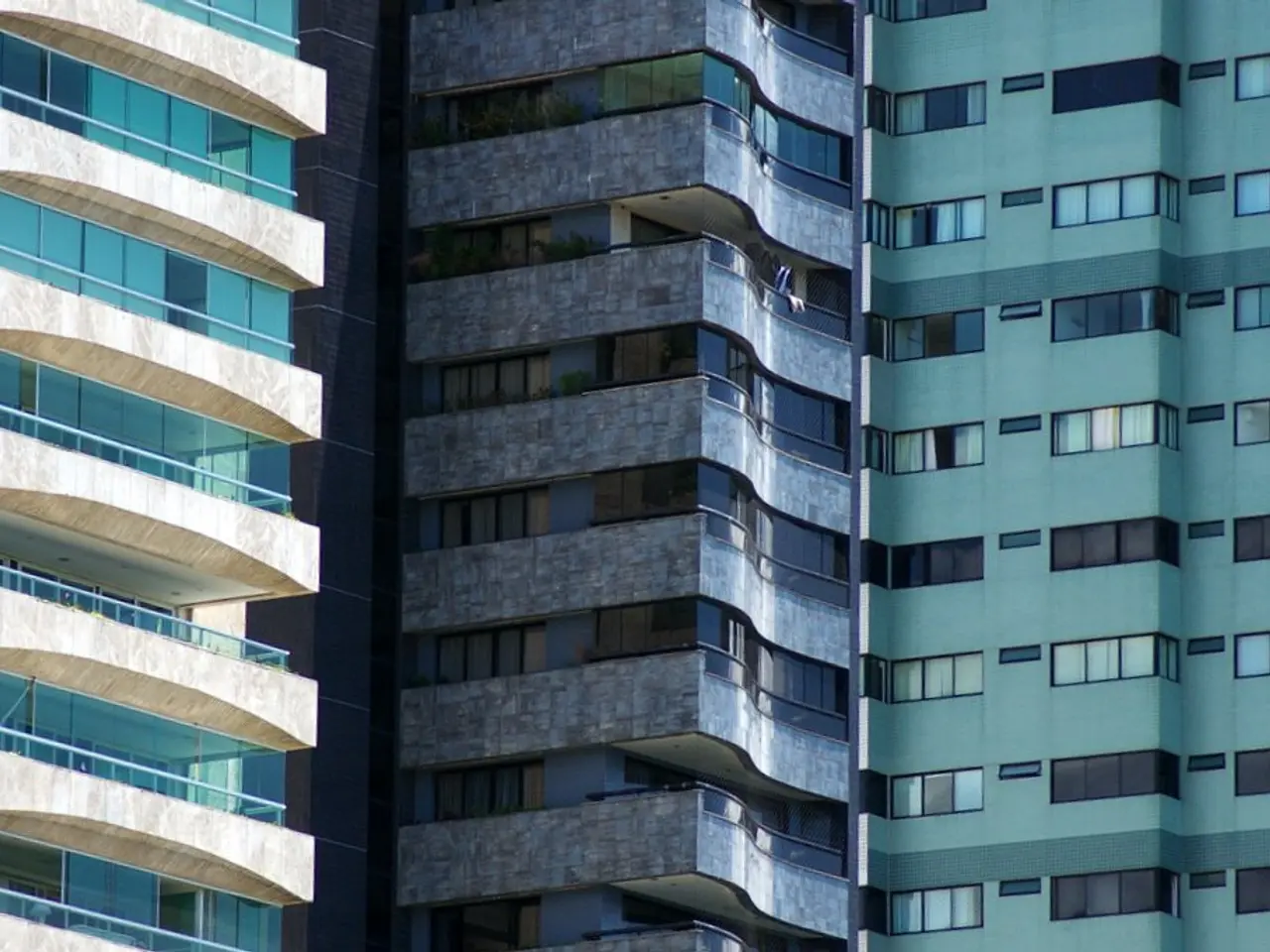Variation in waste water and disposal fees across local authorities in North Rhine-Westphalia (NRW)
In North Rhine-Westphalia (NRW), households are bracing for an average increase of 2.5% in waste disposal fees by 2025, amounting to around 306.80 euros per household [1]. This increase, however, is not uniform across the region, with significant variations observed in cities like Mechernich, Herford, and Düsseldorf, where fees have risen by +30%, +16%, and +14% respectively.
The Taxpayers' Association in NRW has highlighted the main reasons for these extreme differences and the ensuing controversies. A key factor is the use of different depreciation methods for infrastructure investments like sewage treatment plants. Some municipalities accelerate depreciation costs in the short term, increasing annual fees for residents, while others spread these costs differently, leading to lower apparent fees [1]. This variation in accounting practice has sparked accusations of "hidden profits" or financial manipulation, which the Taxpayers' Association has criticized as unfair and opaque.
Rising costs are also influenced by regulatory and environmental requirements pushing municipalities to upgrade wastewater treatment technology. Compliance with stricter wastewater rules and EU directives necessitates increased investment in treatment plants and sludge incineration facilities, which translates into higher fees for taxpayers [2].
The Federation of Taxpayers (BdSt) in NRW has demanded clear legal regulations to control the increase in sewage and waste disposal fees. BdSt NRW has also called for more intermunicipal cooperation to avoid unnecessary solutions and has advocated for fewer mandatory standards in waste disposal, such as comprehensive biotonne and weekly collections [1].
To address these issues, BdSt NRW has proposed that profits from sewage fee accounts should not be used in the general budget, and that sewage fees should be based on the purchase value instead of the replacement value [1]. Furthermore, BdSt NRW has demanded the withdrawal of CO2 pricing for waste incineration plants and has emphasized the need to stop municipalities from exploiting legal leeway to the detriment of fee payers [1].
In addition, BdSt NRW believes that more municipalities should offer smaller waste bins and reduced minimum residual waste volumes to relieve thrifty households. The organization has also called for a stop to the increasing trend of using the depreciation method for sewage fees [1].
Sewage fees for a typical four-person household in 77 municipalities in NRW exceed 1,000 euros per year, with Reken charging the lowest at 330 euros, while Monschau charges the highest at 1,688 euros, representing a difference of over 400% [1]. In some cities like Halle, Wülfrath, or Vreden, sewage fees have risen by more than 25% within a year [1].
The ongoing increase in sewage and waste disposal fees in various municipalities in NRW has prompted BdSt NRW to demand action. The organization's demands aim to ensure fairness, transparency, and affordability in sewage and waste disposal fees across the region.
References: [1] Taxpayers' Association in NRW (2023). Controversies Surrounding Sewage and Waste Disposal Fees in North Rhine-Westphalia. Retrieved from https://www.bdst-nrw.de/de/presse/pressemitteilungen/2023/02/28/controversies-surrounding-sewage-and-waste-disposal-fees-in-north-rhine-westphalia [2] Environmental Protection Agency (2023). Wastewater Treatment and Regulation in North Rhine-Westphalia. Retrieved from https://www.umweltbundesamt.de/themen/abwasser/abwasserreinigung/deutschland/nrw/abwasserreinigung-in-nrw
In the ongoing discourse surrounding sewage and waste disposal fees in North Rhine-Westphalia (NRW), the issue of discrepancies between municipalities has arisen. These differences are partly attributed to varying accounting practices in regards to infrastructure investments, with some municipalities accelerating depreciation costs and others spreading these costs over a longer period, impacting the local business and finance environments [1].
The ongoing debates have not been confined to just sewage fees, as they have also encompassed concerns about the influence of regulatory and environmental requirements on industry, particularly regarding wastewater treatment technology upgrades, which can result in increased costs for businesses and households [2].




